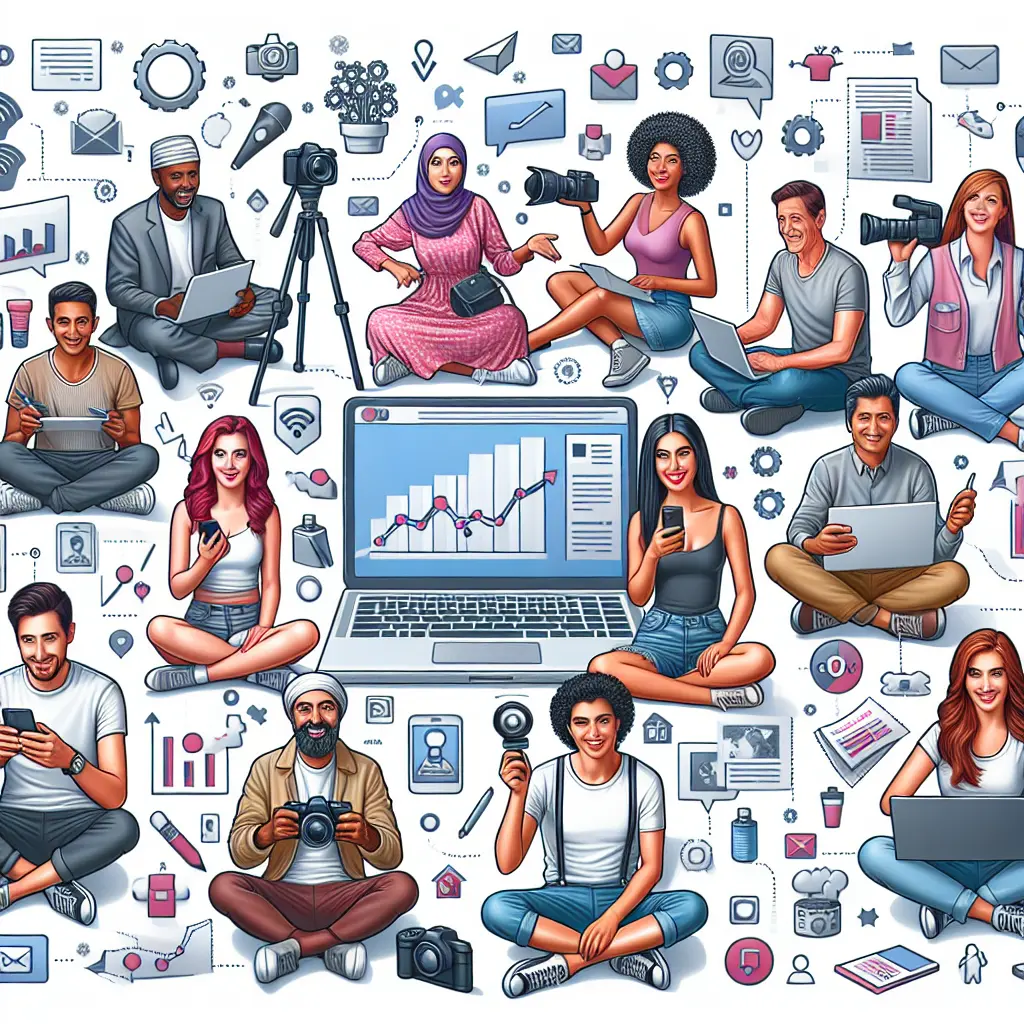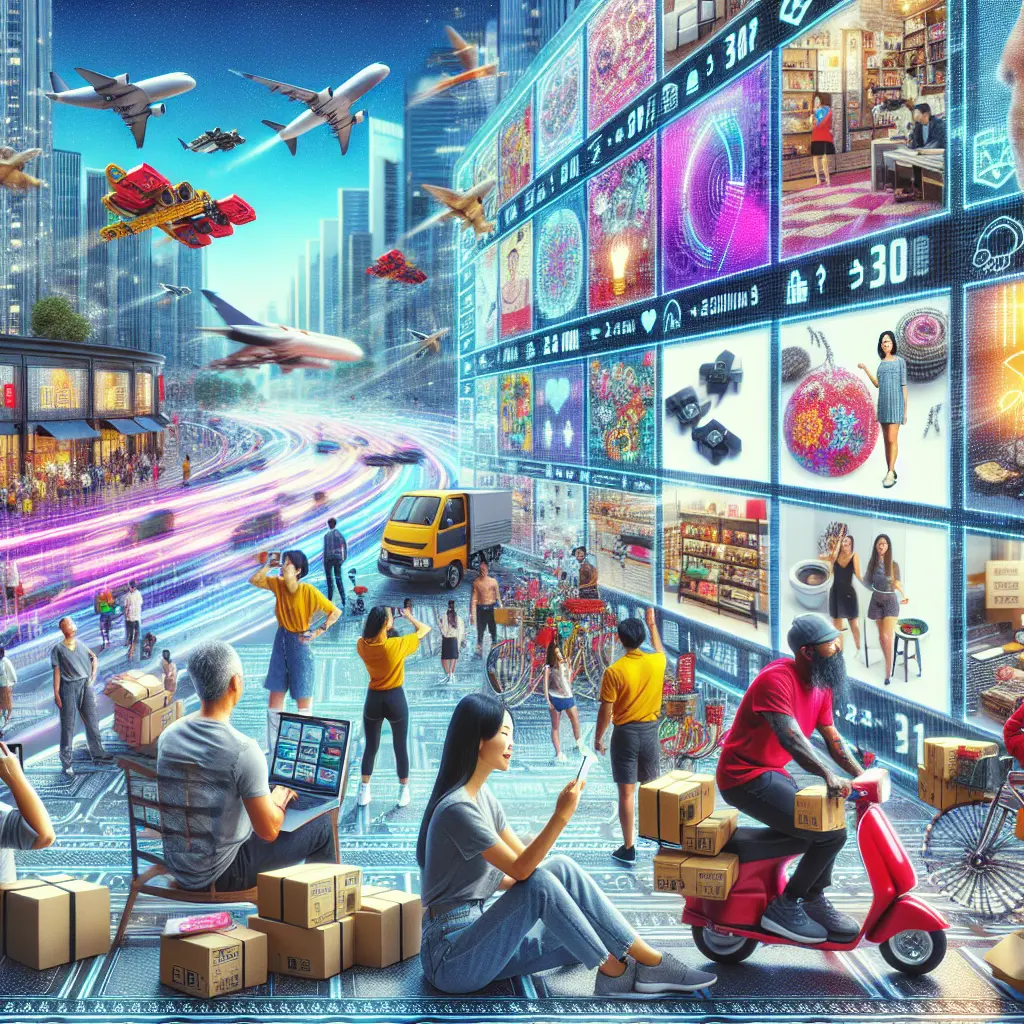In today's rapidly evolving digital landscape, staying ahead of influencer marketing trends is more crucial than ever for brands aiming to connect authentically with their audiences. As we look towards influencer marketing 2024, the integration of technology into influencer marketing strategies is set to redefine how brands collaborate with tech-savvy influencers. The future of influencer marketing will be heavily influenced by AI in influencer marketing, enabling more precise influencer marketing analytics and offering deeper insights into influencer marketing ROI. With the rise of micro-influencers in 2024, brands are discovering the power of niche communities and the heightened engagement they bring.
Tech influencer marketing is also seeing a transformation with the advent of advanced influencer marketing tools and platforms that automate processes, streamline influencer partnerships, and enhance influencer engagement strategies. The emergence of virtual influencers adds another layer to the dynamic world of social media influencer trends, pushing boundaries in influencer content creation. As these digital marketing trends 2024 unfold, brands must adapt their approaches to maximize returns and build genuine connections with their audience.
In this exciting era of digital transformation, exploring the nuances of influencer marketing automation and understanding how to leverage technology in influencer marketing will be key. As we delve into these developments, we will explore the tools and strategies that will shape successful campaigns, ensuring brands can navigate the evolving landscape with confidence and creativity. Dive into the future of influencer marketing as we uncover the trends that will define the industry in the coming year.
As we navigate the evolving digital marketing landscape, influencer marketing remains a crucial tool for brands looking to connect with audiences in authentic and impactful ways. Let's delve into the influencer marketing trends set to dominate in 2024 and beyond.
In 2024, brands are increasingly recognizing the power of micro-influencers. These influencers, typically with fewer than 100,000 followers, often boast higher engagement rates compared to their macro counterparts. This is largely due to their niche communities, which allow for more personal and authentic interactions. According to a report by Forbes, live streaming and influencer collaborations with micro-influencers are emerging as key growth drivers for retail. Brands are tapping into these intimate networks to foster genuine connections and drive meaningful engagement.
Influencer Marketing Trends to Watch in the Coming Year
Artificial intelligence continues to reshape the influencer marketing landscape. AI tools enable brands to analyze vast amounts of data, providing deeper insights into influencer marketing ROI. For instance, AI-powered influencer marketing platforms can identify the most suitable influencers based on audience demographics and engagement patterns. A piece from Search Engine Journal highlights how AI is becoming increasingly sophisticated, aiding brands in crafting more precise influencer marketing strategies.
Automation is another trend revolutionizing influencer marketing strategies. Advanced influencer marketing tools streamline processes such as influencer selection, contract management, and campaign tracking. As noted by Business Insider, these tools not only enhance efficiency but also allow for real-time analytics, helping brands optimize their campaigns on the go.
Virtual influencers are becoming a significant part of social media influencer trends. These AI-generated personas offer unique opportunities for brands to engage with audiences in innovative ways. According to The Drum, while virtual influencers push the boundaries of influencer content creation, they also pose challenges in terms of authenticity and relatability. However, their popularity continues to grow, driven by their ability to maintain a consistent brand image.
As technology in influencer marketing advances, tech-savvy influencers are at the forefront of integrating new tools and platforms into their content. These influencers are adept at using technology to engage audiences more effectively and drive higher conversion rates. ElearningIndustry.com suggests that understanding and leveraging these technologies is crucial for brands aiming to maximize their influencer partnerships.
Enhanced Influencer Engagement Strategies
Engagement remains a key metric in evaluating the success of influencer marketing campaigns. Brands are now focusing on building long-term relationships with influencers rather than one-off collaborations. This shift is driven by the need for consistent brand messaging and deeper audience connections. As highlighted by ArachnidWorks, personalized engagement strategies tailored to specific audience segments are proving effective in maintaining audience interest.
The importance of data-driven decision-making cannot be overstated in today's digital marketing trends for 2024. Influencer marketing analytics provide brands with valuable insights into campaign performance, allowing them to make informed decisions about future strategies. Uproxx emphasizes the role of analytics in identifying trends that resonate with audiences, ensuring that campaigns remain relevant and impactful.
Measuring the return on investment (ROI) of influencer marketing campaigns is becoming increasingly critical for brands. This involves not only tracking sales conversions but also assessing brand awareness and audience sentiment. According to Thrivethemes.com, businesses that effectively measure and analyze their influencer marketing ROI are better positioned to allocate resources efficiently and achieve their marketing objectives.
The demand for creative and engaging content is higher than ever, with influencers constantly seeking new ways to captivate their audiences. As noted by GamesIndustry.biz, innovations such as augmented reality (AR) and virtual reality (VR) are providing influencers with new avenues for content creation, enhancing the overall user experience.
In summary, as we look toward the future of influencer marketing in 2024, it is clear that technology will play an integral role in shaping strategies and driving success. By staying abreast of these trends, brands can ensure they remain competitive in an ever-evolving digital landscape, building stronger connections with their audiences through strategic influencer partnerships and innovative engagement tactics.










Leave a Comment